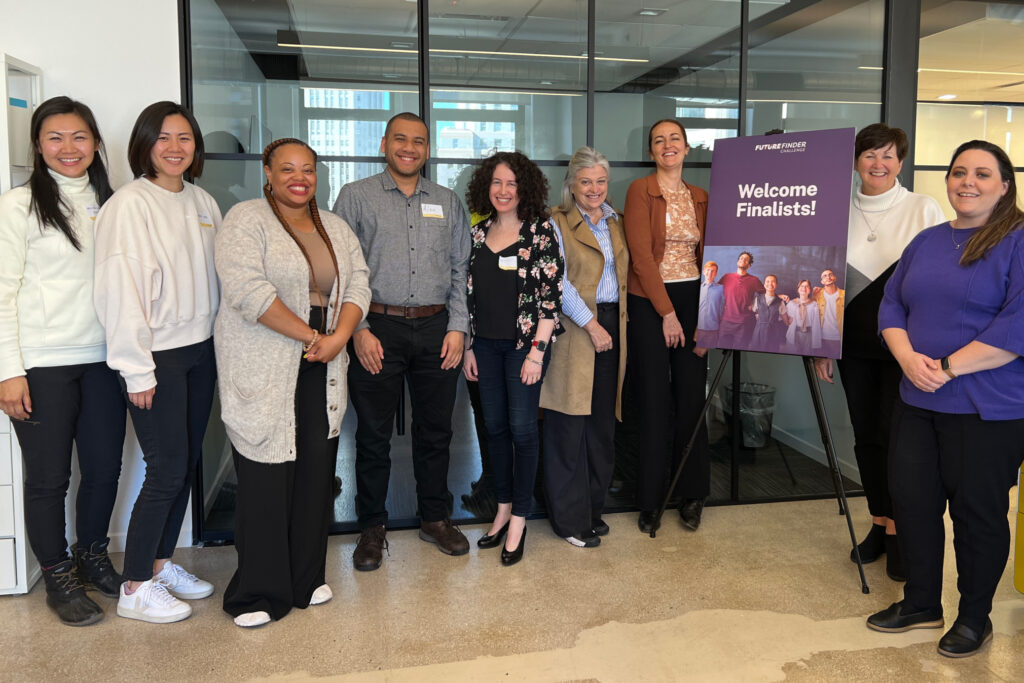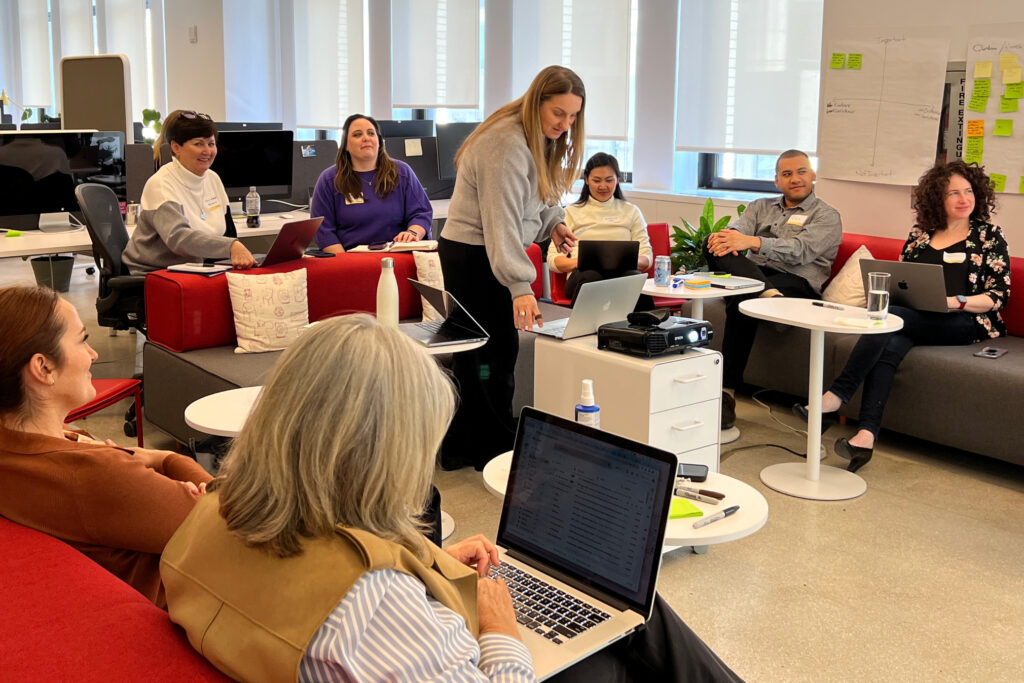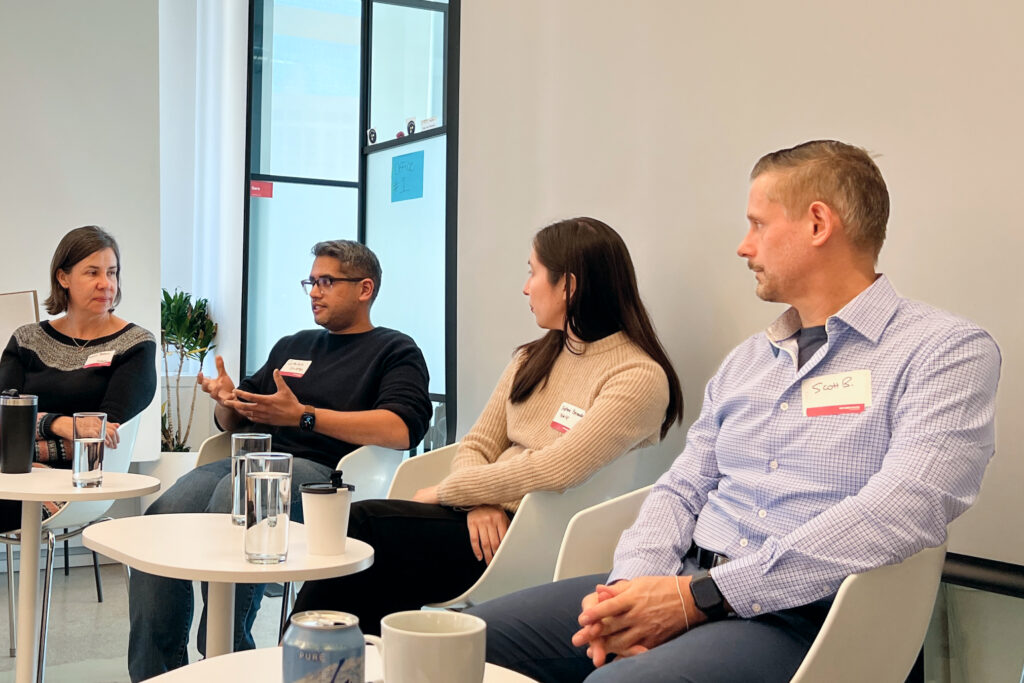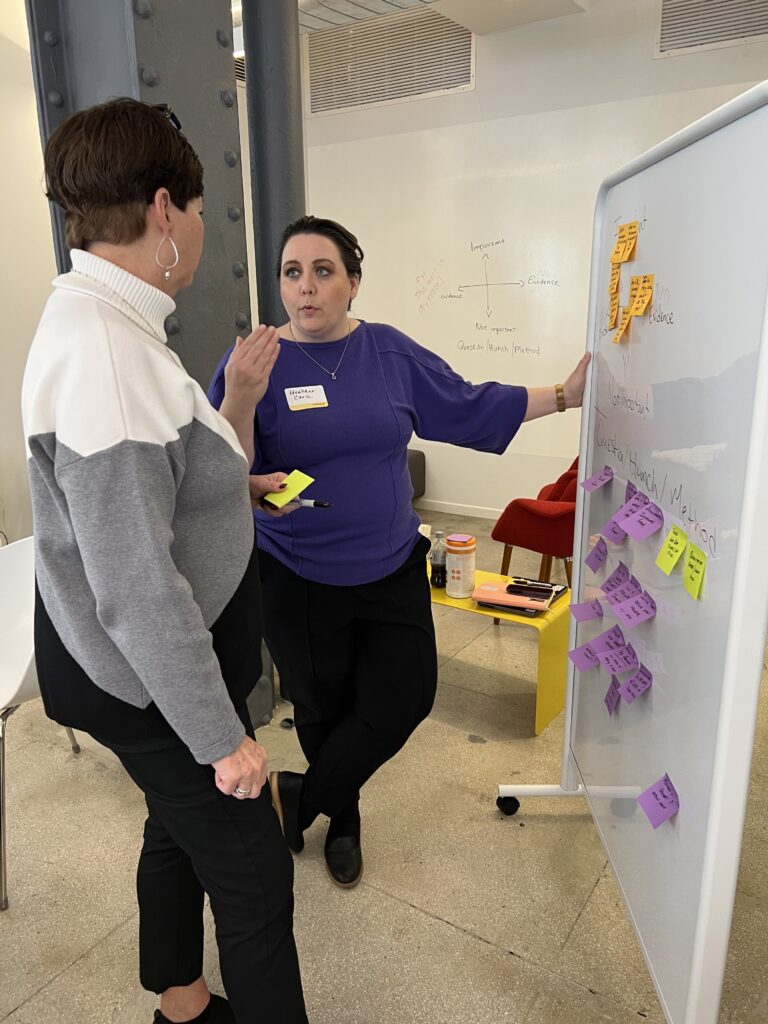This March, the challenge finalists attended an in-person boot camp in New York City to kick off the Stage 2 virtual accelerator. The finalists were joined by members of the challenge team, edtech founders, adult ed providers, and adult learners. Over two days, the teams built relationships and foundations that will support their work to reimagine digital career navigation tools for adult learners. Through a series of panels, workshops, and fireside chats, several key themes emerged.

Navigating the adult ed landscape
The adult education ecosystem consists of federal, state, and local agencies, as well as an array of providers and potential employers. Successfully navigating this landscape requires a deep understanding of the different roles played by agencies at every level, knowledge of relevant legislation and funding streams, and working relationships with local providers.
Relationships, in particular, are key. To develop tools that support the full needs of adult learners, edtech innovators are encouraged to build relationships with experts who can help clarify the latest information about federal and state policies, local providers, and available funding. It is equally important for innovators to build relationships of trust with adult education providers themselves, who can help them connect with adult learners.
Building the necessary know-how and networks takes work, but it can be done. Innovators can attend conferences to meet providers, teachers, and students; invite learners and providers to technology demonstrations; and sustain relationships through mailing lists. And ultimately, innovators will need to gain and demonstrate a genuine understanding of and passion for adult education providers to feel comfortable recommending their tools.

The unique needs of adult learners
The term “adult learners” encompasses a diverse population of 43 million adults who could benefit from adult education. There are no one-size-fits-all solutions to the challenges adult learners face across their career navigation journeys. But subject matter experts shared a few universal ideas that can inform the design of digital career navigation tools.
Finding a job may be the end goal, but innovators are encouraged to consider how their tools might help learners connect with wraparound services that support their broader needs. For many, access to counseling and other health services can be just as important to the career journey as upskilling and resume development.
Digital tools that hold the greatest potential are likely those that can facilitate individualized support for learners, complement (rather than replace) face-to-face relationships between providers and learners, and support learners’ broader needs for security and care, in addition to identifying opportunities for employment.

The importance of user-informed design
Technology may hold the key to reimagining career navigation for adult learners, but only if innovators thoughtfully design tools with end users and the broader adult ed ecosystem in mind. Providers and learners both need tools that are quick to learn, easy to use, and which support and maximize established ways of working with each other. No tool can replace the value of one person helping another.
Any digital career navigation tool designed for adult learners needs to be accessible by users with a range of technology skill levels and across various devices. Many adult learners access digital platforms on their phones rather than computers and have limited internet access at home. Tools should also be accessible to people with different levels of English language proficiency.
It’s important to ensure that adult learners and adult education providers play a meaningful role in both design research and testing. To accomplish this, innovators should conduct qualitative research throughout the design process and seek input from diverse users with different career navigation needs. Ultimately, user-informed design will make or break the value of any digital tool.

Thank you to our guests
The challenge team thanks the experts, mentors, and adult learners who attended the boot camp and gave their time and expertise to help reimagine career navigation for adult learners:
- Carlos Delgado, Current adult education student
- Deborah Kennedy, Executive Director, National Coalition for Literacy and Senior Consultant, Key Words
- Fatma Ghailan, Director of Community Learning, Queens Public Library
- Giovanna Perciballi, Assistant Director of Adult Education Programs, CUNY New York City College of Technology
- Girish Gupta, Principal Product Manager, LinkedIn Learning
- Jenai Blackmore, Current adult education student
- Katie Brown, Founder and Chief Education Officer, EnGen
- Kristine Mudd, Independent consultant and educator
- Lakiesha Johnson, Adult education graduate
- Larisell Brooks, Current adult education student
- Scott Brewster, Co-Founder and Director of Partnerships, Hats & Ladders
- Stanley Buchesky, CEO, pi-top and Managing Partner, The EdTech Fund
- Stephanie Bermudez, Head of Career, Pathrise
- Yustina Saleh, Managing Director of Innovation Solutions, The Burning Glass Institute
Looking ahead
As they progress through the six-month accelerator, finalists will have access to virtual resources, webinars, and mentorship from subject matter experts across topics such as adult education, design research, product design, storytelling, and sustainability. Stay tuned for additional updates about the finalist teams and their mentors.
